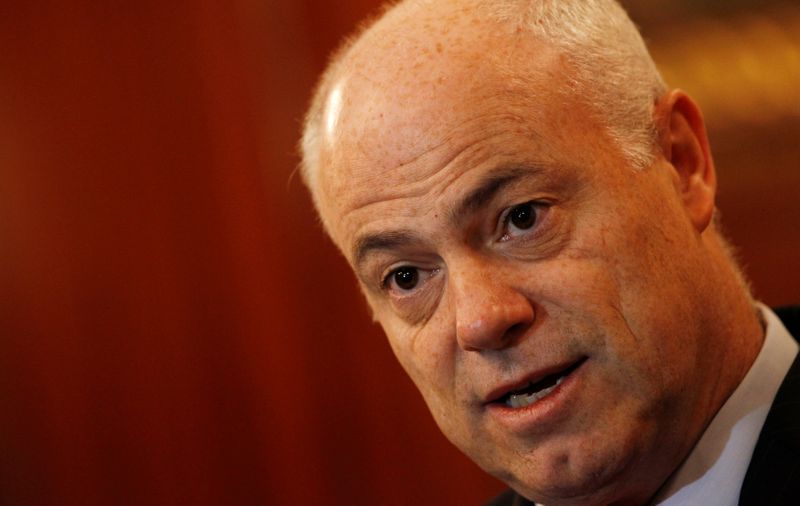By John O'Donnell and Francesco Canepa
FRANKFURT (Reuters) - European countries need to join forces to shield their banks from the coronavirus outbreak, one of the bloc's top regulators said on Monday, potentially using a 500 billion euro ($545 billion) EU recovery fund to do so.
The remarks from Jose Manuel Campa, who leads the European Banking Authority (EBA), will rekindle a divisive debate about whether rich countries such as Germany should support banks of poorer neighbours such as Italy.
Campa made his comments days after German Chancellor Angela Merkel and French President Emmanuel Macron proposed an EU recovery fund to help the bloc's worst-hit members to rebuild their economies after the coronavirus outbreak.
"It would make sense to have a European approach to support banks," Campa told Reuters.
"That could be in the form of a TARP-style precautionary recapitalisation. Here, the EU recovery fund could play a role," he said, suggesting that assistance could be aimed at banks that were fundamentally robust but hit by the coronavirus crisis.
During the financial crisis of 2008, the U.S. government's Troubled Asset Relief Program (TARP) injected billions into the country’s banks.
The EBA says that European banks have built a capital buffer of more than 430 billion euros, which should be more than enough to cover losses resulting from a rise in unpaid loans as businesses such as travel agents and restaurants struggle to ride out the pandemic.
VULNERABLE
However, some lenders - particularly in economies where the pandemic hit hardest, such as Italy and Spain - are more vulnerable than others.
Berlin recently dropped its long-standing opposition to joint borrowing by EU countries, backing a 500 billion euro recovery fund to give grants to countries stricken by the outbreak.
Extending that to banks, however, is likely to stir up stiff opposition.
"I'm expecting a wave of NPLs (non-performing loans) in the next two or three quarters," said Campa, referring to unpaid loans. "How much is difficult to say."
Campa was a junior economy minister in Spain at the beginning of the global financial crisis that later prompted Madrid to apply for an international bailout.
To repair its financial system, Spain set up a so-called bad bank to deal with toxic loans.
"The use of bad banks to segregate non-performing loans has proven useful," Campa said. "Germany had bad banks, while countries like Ireland used asset-management agencies in the same way. It could be used again."
Germany, where unemployment is low and borrowers are less likely to default, has vehemently opposed any pan-European move, arguing that it would leave Germany on the hook for the problems of lenders in countries with mounting unpaid debts.
"Banks are resilient and stronger than before the last crisis," said Campa. "But we don't know how the crisis will evolve. It is best to act sooner rather than later."
